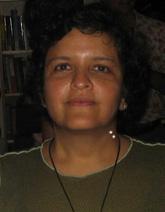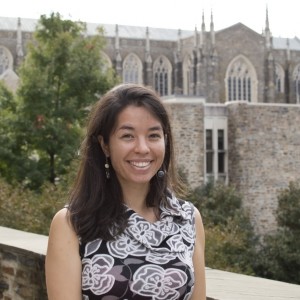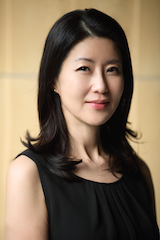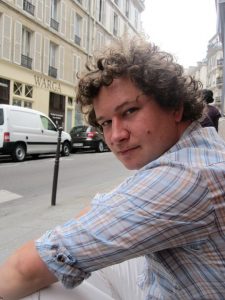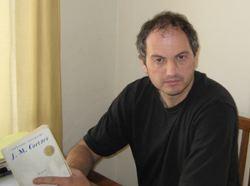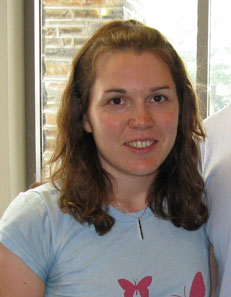COMMA Members
Faculty
Maurizia Boscagli is Professor of English and Comparative Literature at the University of California, Santa Barbara. She received her Ph.D. from Brown University. Her central interests include: gender studies and feminist theory; the body; theories of subjectivity; British and European Modernism; fin de siecle literature; critical and cultural theory; and theories of mass culture. She is the author of Eye on the Flesh: Fashions of Masculinity in the Early Twentieth Century, a translation of the book Constituent Power, by Antonio Negri, and the book Stuff Theory, and co-editor of Joyce, Benjamin and Magical Urbanism ( European Joyce Studies, No. 25). She has also written numerous articles and reviews on modernist masculinity, Walter Benjamin, and James Joyce. Her current project concerns the politics and aesthetics of work.
Enda Duffy is a Professor in the English Department at the University of California at Santa Barbara, where from 2016-2022 he also served as the Arnhold Presidential Dept. Chair. He received his Ph.D. from Harvard University, where he won a Whiting Fellowship. His central interests include post-colonial and global literatures and cultures; modernism and postmodernism; Irish literature; cultural studies; literature and politics, critical theory, materilaist critique, and James Joyce. He is the author of The Subaltern Ulysses (Univ. of Minnesota Press), and The Speed Handbook: Velocity, Pleasure, Modernism (Duke Univ. Press), which won the Modernist Studies Association Book Prize for the best book in Modernist Studies, 2011, and co-editor of Joyce, Benjamin and Magical Urbanism (European Joyce Studies, 25), and Katherine Mansfield’s Bliss and Other Stories (Edinburgh Univ. Press), as well as editions of Joyce’s Ulysses and The Best Short Stories of Katherine Mansfield. He has written many articles and reviews on post-colonial and modernist writing, modernism and technology, and the works of Mansfield, Joyce and many others. Professor Duffy is currently working on how new concepts of energy have functioned geopolitically in modernity.
Bishnupriya Ghosh is Professor of English, former Dept. Chair of English and of the Dept. of Global Studies, and Assocaite Dean of the Social Sciences at the University of California, Santa Barbara, where she teaches postcolonial theory and global media studies. Much of her scholarly work interrogates the relations between the global and the postcolonial; area studies and transnational cultural studies; popular, mass, and elite cultures. While publishing essays on literary, cinematic, and visual culture in several collections and journals such as boundary 2,Journal of Postcolonial Studies, Public Culture and Screen, in her first two books, Ghosh focused on contemporary elite and popular cultures of globalization. When Borne Across: Literary Cosmopolitics in the Contemporary Indian Novel (Rutgers UP, 2004) addressed the dialectical relations between emerging global markets and literatures reflexively marked as “postcolonial,” and Global Icons: Apertures to the Popular (Duke UP, 2011) turned to visual popular culture as it constitutes the global. Research is underway for a third monograph, The Unhomely Sense: Spectral Cinemas of Globalization that tracks the relations between globalization and cinematic/post-cinematic images.
Melody Jue is Associate Professor of English at the University of California, Santa Barbara. Her research and teaching interests concern oceans & the environmental humanities, American literature, digital media & media theory, science fiction, science & technology studies, and the relation between theory and practice. She completed her Ph.D. in the Graduate Program in Literature at Duke University, where she was a recipient of the Katherine Goodman Stern Dissertation Completion Fellowship and James B. Duke Graduate Fellowship. Prior to this, she worked as a Fulbright English Teaching Assistant at the Open University of Hong Kong. Melody has published articles in Grey Room, Animations: An Interdisciplinary Journal, Green Planets: Ecology and Science Fiction, and has forthcoming work in Size & Scale in Literature and Culture. Drawing on the experience of becoming a scuba diver (supported by two Summer Research Fellowships from the Duke Graduate School), her current book project concerns how the ocean shifts our understanding of critical terms in media theory through its conditions of movement, erasure, and dissolution, and how this new understanding might be brought to bear on questions of cultural preservation and environmental justice.
Sowon S Park (DPhil Oxford) is Assistant Professor in English at UCSB. She specializes in British Modernism, World Literature, and the relationship between Literature and other forms of knowledge, in particular Cognitive Neuroscience. Before coming to UCSB, she held faculty positions at Oxford, Cambridge and Ewha University, Seoul. Her publications on Modernism include ‘Political Activism and Women’s Modernism’ in The Cambridge Companion to Women’s Modernism (2010), ‘Suffrage and Virginia Woolf: ‘The Mass behind the Single Voice’ in The Review of English Studies vol. 56 (Feb 2005) and ‘Suffrage Fiction: A Political Discourse in the Marketplace.’ English Literature in Transition 1880-1920 vol.39:4 (Sep. 1996).
Rita Raley is Associate Professor of English, with courtesy appointments in Film and Media Studies, Comparative Literature, and Global Studies. Her primary research interests lie at the intersection of digital media and humanist inquiry, with a particular emphasis on cultural critique, artistic practices, language, and textuality. She is the author of Tactical Media(University of Minnesota, 2009), co-editor of the Electronic Literature Collection, Volume 2 (2011), and has more recently published articles on interventionist media arts practices, digital poetics, and global English. She has had fellowship appointments at the National Humanities Center and UCLA, as part of the Mellon-funded project on the Digital Humanities, and has taught at Rice and the University of Minnesota. In Spring 2011 she held a short-term Fulbright appointment with “ELMCIP: Electronic Literature as a Model of Creativity and Innovation in Practice” at the University of Bergen, Norway; and in December 2011 she was a writer in residence hosted by the Dutch Foundation for Literature in Amsterdam. In 2012-2013 she was a visiting Associate Professor in English at NYU. She co-edits the “Electronic Mediations” book series for the University of Minnesota Press and the “Critical Media Aesthetics” book series for Bloomsbury.
Glyn Salton-Cox (1983-2022) completed his PhD at Yale University, entitled “Cobbett and the Comintern: Transnational Provincialism and Revolutionary Desire from the Popular Front to the New Left.” His research interests focused on the cultural, literary, and intellectual history of the left, especially intersections between Soviet, Weimar, and British Marxist intellectuals and writers; leftist cultural nationalisms; and the uneasy relationship between radical theories of sexuality and Marxist thought. Glyn’s second book project interrogated representations of urban modernity in order to reconstruct the history of the so-called “precariat” more specifically, the ways in which the category of “the underclass” has served as a “dumping ground” for diverse underprivileged subjects whose subjectivities are located beyond normative working-class subjectivities. He was a highly popular teacher of a range of subjects in the UCSB English Department, including “Sexual Revolutions of the Twentieth Century.” His book Queer Communism and the Ministry of Love: Sexual Revolution in British Writing of the 1930s (Edinburgh UP) examines queer writers of the 1930s who engaged with Communism, including Christopher Isherwood, Sylvia Townsend Warner, and Katharine Burdekin. He guest c0-edited a special edition of Critical Quarterly on “The Long 1930s” (October 2015). His numerous essays have been published in Modern Language Quarterly, Comparative Literature, A History of 1930s British Literature (Cambridge UP, 2019), Keywords: A Journal of Cultural Materialism, and Twentieth-Century Communism.
Russell Samolsky is Associate Professor of Anglophone literature in the English Department at UCSB. His research interests include South African literature, Jewish studies, animal studies, and the global humanities. His book, Apocalyptic Futures: Marked Bodies and the Violence of the Text in Kafka, Conrad, and Coetzee, which takes account of the complex relationship between past apocalyptic texts and future catastrophic events, has rbeen published by Fordham University Press. His current book project, “Killing Dogs,” examines the place of the dog in the contemporary literary and theoretical discourse on the question of the animal.
Teresa Shewry is Assocaite Professor of English at the University of California, Santa Barbara. She received a PhD in Literature from Duke University and a BA in English and Japanese from Victoria University, New Zealand. Her research areas include Pacific and Pacific Rim cultures, environmental humanities, and water and the ocean. Her book, Hope at Sea: Possible Ecologies in Oceanic Literature (University of Minnesota Press), explores hope in the context of environmental change in the Pacific. She is also a co-editor of Environmental Criticism for the Twenty-First Century (Routledge, 2011). Teresa co-organized a Mellon Sawyer Seminar on “Sea Change.”



